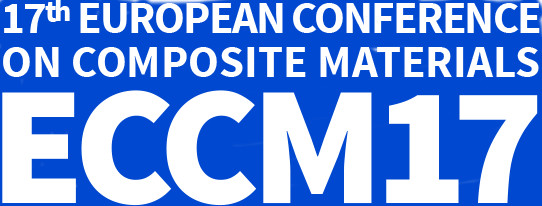

App-Einstellungen:
EXPERIMENTAL AND SIMULATED DEFECT DETECTION IN FIBRE REINFORCED COMPOSITE MATERIALS USING THE MICROWAVE NON-DESTRUCTIVE EVALUATION TECHNIQUE
Michael Gower (NPL) Maria Lodeiro (NPL) Richard Shaw (NPL) Andrew Gregory (NPL) Rolf Judaschke (Physikalisch-Technische Bundesanstalt (PTB))
An experimental and theoretical study into microwave non-destructive inspections using reference defect artefacts, incorporating artificial defects with well-defined sizes and positions, to compare results with CST Microwave Studio simulations.
SUBCOMPONENT TESTING OF TRAILING EDGE PANELS IN WIND TURBINE BLADES
Kim Branner (Technical University of Denmark) Peter Berring (Technical University of Denmark) Philipp Ulrich Haselbach (Technical University of Denmark)
This paper proposes a static subcomponent test method designed to check the compressive strength of the trailing edge region in wind turbine blades. The aim is that the method can be in certification according to the new DNV GL rotor blade standard.
THE POTENTIAL OF SMART CLIMBING ROBOT COMBINED WITH A WEATHERPROOF CABIN FOR ROTOR BLADE MAINTENANCE
Josef Schleupen (University of Applied Sciences Aachen) Heiko Engemann (University of Applied Sciences Aachen) Mohsen Bagheri (University of Applied Sciences Aachen) Stephan Kallweit (University of Applied Sciences Aachen) Peter Dahmann (University of Applied Sciences Aachen)
Introduction of a weatherproof cabin for inspection and repair of wind turbine rotor blades. A weather independent solution can increase the maintenance efficiency. Including a study of influences of the cabin structure to SMART's climbing process.
TOWARDS RAIN EROSION CHARACTERIZATION OF WIND TURBINE BLADE COATINGS: EFFECT OF THE IN-MOULD CURING CONDITIONS ON THE COATING-LAMINATE INTERPHASE
Enrique Cortés (Aerox Advanced Polymers) Fernando Sánchez (University CEU Cardenal Herrera) Trevor M. Young (Univeristy of Limerick) Anthony O'Carroll (Univeristy of Limerick) David Busquets (Universidad Politécnica de Valencia) Francisco Chinesta (Ecole Centrale Nantes)
Erosion damage is a major concern, be caused by rain droplet impact on the leading edges of the wind turbine blades. An investigation has been conducted to relate the in-mould curing of the coating on the interphase coat-laminate and the resulting rain erosion durability of the component.
APPLICATION OF LATTICE COMPOSITE STRUCTURES AS REINFORCING ELEMENTS OF CONCRETE COLUMNS
Andrey Skleznev (CRISM) Valery Vasiliev Alexandr Razin (CRISM)
Load-carrying capacity and stiffness of a concrete column with composite lattice reinforcement is studied experimentally. Numerical simulation of stress-strain state of the concrete reinforced with composite lattice structure is presented.
APPLICATION OF STEEL-GFRP HYBRID COMPOSITE TO ASYMMETRIC CABLE-STAYED BRIDGE FOR EMERGENCY DISASTER RELIEF
Fang-Yao Yeh (National Center for Research on Earthquake Engineering) K.C. Chang (National Taiwan University) Y.C. Sung (National Taiwan University)
This study develops an asymmetric cable-stayed temporary bridge system for emergency disaster relief. The proposed bridge can be assembled within 6 hours, and possesses the advantages of (1) quick assembly, (2) DIY by residents, and (3) reusability.
CARBON FIBER REINFORCED COMPOSITES PROVED TO BE VERY SUCCESSFUL IN CONSTRUCTION DURING A QUARTER OF A CENTURY
Urs Meier (EMPA) Rolf Brönnimann (EMPA) Peter Anderegg (EMPA) Giovanni Terrasi (EMPA) Masoud Motavalli (EMPA) Christoph Czaderski (EMPA)
The application of carbon fiber reinforced polymers (CFRP) in civil engineering was before 1991 unknown. Today it is worldwide well accepted and proved to be very reliable.
CEMENT MORTAR REINFORCED WITH RECYCLED CARBON FIBRE AND CFRP WASTE
Hoang Nguyen (Doshisha University) Toru Fujii (Doshisha University) Kazuya Okubo (Doshisha University) Valter Carvelli (Politecnico di Milano)
In this experimental investigation, the effects of recycled carbon fibres (RCF) and carbon fibre reinforced polymer (CFRP) waste of different percentages were measured on the mechanical properties of Portland cement composites.
COMPOSITE MATERIAL IN REPAIR OF REINFORCED CONCRETE STRUCTURES
Jules Assih (University of Reims Champagne-Ardenne) Ivelina Ivanova (University of Reims Champagne-Ardenne)
This study is especially interested in repairing reinforced concrete beams and corbels by bonding composite materials. The purpose of the investigation was to better understanding the material behavior of strengthened damaged structures.
FAILURE MODES OF CARBON FIBER REINFORCED POLYMER PLATE - STEEL JOINTS WITH DUCTILE OR BRITTLE ADHESIVES
Guijun Xian (School of Civil Engineering) Jun He (School of Civil Engineering)
The failure mode of the FRP-steel joint depends on the relative strain between the CFRP and adhesives. When the adhesive possesses a low strain, the CFRP delamination failure tended to occur. A prediction model of maximum shear stress is proposed.
